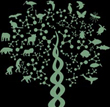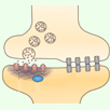Wednesday, 13 May 2015
Preserving Our Bodies and Minds from the Ills of Civilization

For several hundreds of thousands of years, human beings lived and evolved in small groups of hunter-gatherers whose environment was the natural world. It is only for the past 10,000 years or so that we have lived first in villages, and then in cities. Today, a large proportion of us live in megalopolises and work in factories or offices where we have little contact with nature. And what is worse, our contacts with one another are becoming more and more virtual, and our emotional bonds weaker and weaker.
Thus, over what is a very short timespan from an evolutionary standpoint, the human body and the human brain, shaped by a natural environment very different from our own, have had to adapt to a very radical change in environment. And, it would seem, the further our urban way of life departs from the ways of our hunter-gatherer ancestors, the more our physical and mental health suffers.
That is the argument made by John Ratey, co-author of the book Go Wild: Free Your Body and Mind from the Afflictions of Civilization, in an interview by Ginger Campbell in the last episode of his podcast Books and Ideas. (more…)
Body Movement and the Brain | Comments Closed
Monday, 27 April 2015
The Impression of Déjà Vu.

This week we’d like to suggest some readings on a strange phenomenon that people may experience when travelling, among other occasions: the impression of déjà vu.
The first link below describes just one example of this phenomenon: you are touring a castle in a country that you are visiting for the first time, when suddenly you have the impression that you have been there before. But after the tour, while visiting the castle’s gift shop, you see a postcard with a photo of the castle, and you realize that a movie that you saw several years ago was shot there. The two experiences seemed too distant or disjointed in your memory for you to make the connection explicitly, but they were close enough for you to have an implicit sense of familiarity. (more…)
The Emergence of Consciousness | Comments Closed
Monday, 13 April 2015
Recent Studies on the Role of Sleep

As Evan Thompson, a philosopher of biology and the mind, stated in a recent lecture, our Western way of life is so focused on productivity as a dominant value that when we go to bed, we are so exhausted that we literally “crash” into sleep. As a result, we very often do not even experience the special state of consciousness known as hypnagogia, which normally occurs during the first phase of falling asleep. When someone is in this state, they are still sensitive to sensory inputs from the outside world, but no longer entirely awake, and they are more likely to make all sorts of original mental associations.
In addition to watching Thompson’s lecture (see first link below), you may want to read Waking, Dreaming Being (the book on which the lecture is based, published in 2014), or his earlier, very rewarding book, Mind in Life (2007). (more…)
Monday, 30 March 2015
Is There an Evolutionary Continuity between Spatial Navigation and Declarative Memory?

Sometimes someone comes up with a hypothesis whose parts fit together so neatly that it seems amazing that no one has ever thought of it before. A good example is the hypothesis proposed by György Buzsáki and Edvard Moser in the January 2013 issue of the journal Nature Neuroscience, where they propose that there is an evolutionary continuity between the cognitive processes that we use to orient ourselves in space and and the mechanisms that underlie our declarative memory. (more…)
Memory and the Brain | Comments Closed
Saturday, 14 March 2015
The “Coming Out” of the Electrical Synapse

The first living organisms composed of more than one cell first appeared on Earth slightly over 3 billion years ago. Once they did, the need arose for all of the cells in each organism to co-ordinate their efforts toward a single goal: the survival of the organism as a whole. To do so, these cells began secreting molecules that, by binding to the surface of other cells, informed them about what was happening elsewhere in the organism.
That, in short, is the origin not only of the human hormonal system but also of human synapses: the connections between nerve cells. In general, when people talk about synapses, they are referring to chemical synapses, into which neurotransmitters are released by the presynaptic neuron, then migrate across a space measured in nanometres to bind to receptors on the postsynaptic neuron on the other side.
But there is another category of synapses as well: electrical synapses. (more…)
From the Simple to the Complex | Comments Closed







